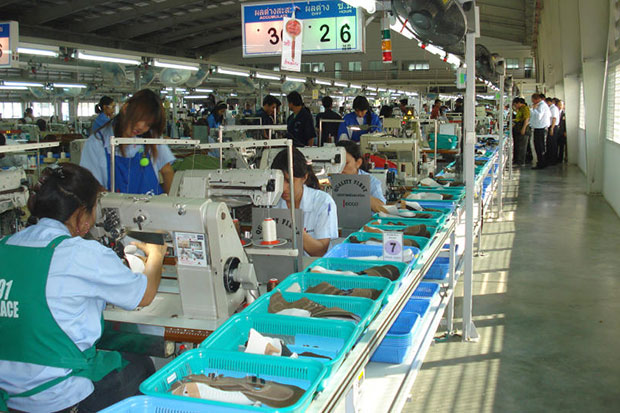
The Thai Labour Solidarity Committee, one of Thailand's major labour organisations, has called for Prime Minister Prayut Chan-o-cha to increase the minimum wage to 360 baht from the current 300 baht per day.
Wilaiwan Sae Tia, president of the TLSC, said higher public utilities charges and rising food prices have increased the cost of living and placed a greater burden on workers.
To compensate for this, the daily labour minimum wage should be increased to 360 baht, she said.
Ms Wilaiwan also called on the government to disband the provincial labour wage committees, saying they were not able to effectively represent workers; to draw up a clear wage structure; and to create a mechanism to protect workers who have been employed a year or more, to guarantee a regular wage adjustment and welfare benefits.
A recent cost of living survey involving 2,933 workers in 12 provinces -- including Bangkok, Chon Buri and Ayutthaya -- found that 90% of them had to take care of other people who had no income.
The survey revealed that 69% of the respondents earned more than 300 baht but rest earned 200-300 baht per day.
Of the respondents, 37% earned 10,000 - 12,500 baht a molnth and 24% 12,500-15,000 baht per month.
She said about 52% were permanent employees receiving a monthly pay; 46% were hired on a daily basis; and 0.14% worked outside the labour system.
The survey found the average daily cost of living of each worker had risen from 352.53 baht in August 2013 to 360.72 baht in March 2015.
She said 16% of the respondents had monthly repayments to make on credit card loans, 22% had to make payments on unregulated loans, 23% on bank loans, and 38% on loans from other sources.
Ms Wilaiwan said the government should have a clear policy of making an annual adjustment of the daily minimum wage.
"The demand for 360 baht per day is not too much. In fact, the daily minimum wage should be 400-500 baht. Workers manage to survive these days because they do outside jobs or work overtime," she said.